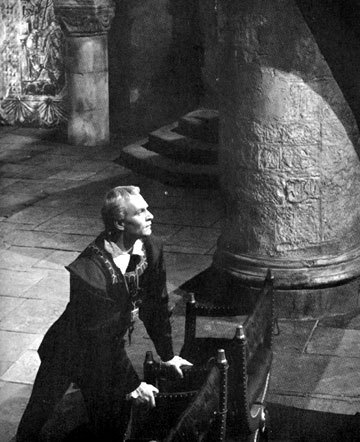



He does in fact kill the King with remarkable dispatch, as many Shakespeareans have pointed out. The main trouble with this interpretation is that Hamlet does not hesitate. So Hamlet’s unconscious tells him that “he himself is no better than the murderer whom he is required to punish,” and the “loathing” which should have driven him to revenge is replaced by “self-reproach" and “conscientious scruples.” Thus Freud found an explanation for what most intellectuals of his generation, following Goethe and other nineteenthcentury critics, already believed in-Hamlet’s “hesitation.” In brief, the drama of Hamlet’s life is replaced by the drama of what Hamlet might reveal from a couch.Īt the beginning of the movie, a narrator intones through the fogs of Elsinore: “This is the tragedy of a man who couldn’t make up his mind.” Then Sir Laurence appears as the ineffective dreamer, the hysteric, the oversensitive, “scholar.” Hamlet’s alleged procrastination, which for over a century was considered a literary enigma, is attributed - by Freudian trappings, by the neurasthenic quality of the acting, and by cutting significant parts of the play - to the Oedipus complex.Īfter writing that Shakespeare’s play “does not give the cause or motive” of Hamlet’s “hesitation,” Freud himself explained it as follows: Hamlet can’t take vengeance upon the man who takes his father’s place with his mother, because Hamlet as a child has repressed the desire to do the same thing. The mad Ophelia makes caressing motions over a phallic ornament on the back of a chair, the camera focuses with heavy significance on the labial drapes over the Queen’s bed, and why Hamlet doesn’t kill the King in the first reel can be explained only in Hamlet’s unconscious. FOLLOWING the fashion in movies and books, Sir Laurence Olivier has acted and directed a Hamlet with a simplified Freudian interpretation.


 0 kommentar(er)
0 kommentar(er)
